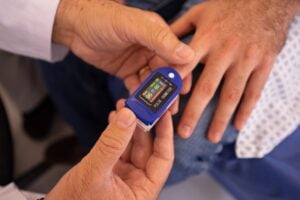New Technology Brings Improved Diagnosis of Heart Disease

New Technology Brings Improved Diagnosis of Heart Disease
Heart problem is the prominent awesome of Americans. According to the American Heart Association, greater than 13 million
Americans are impacted as well as, when detecting cardiovascular disease, making use of the most effective clinical imaging innovation readily available is critical.
Up until lately, detecting heart problem was tough without a intrusive and also pricey procedure, specifically for clients with little or no background of a heart disease.
Currently, brand-new clinical imaging modern technology has actually greatly boosted the location of computed tomography or CT scanning,
which makes 3-D pictures of interior components of the body, consisting of the heart, mind and also various other body organs, to make noninvasive medical diagnoses of heart illness and also stroke quicker as well as much more exact.

Similar to many clinical imaging treatments, photo high quality is vital. The medical diagnosis might not be as precise if the checked picture does not plainly stand for all the min information.
As well as today’s newest CT innovation permits physicians to not just see points they’ve never ever seen prior to, suggesting people are obtaining one of the most precise medical diagnosis feasible,
yet additionally perform quicker examinations on seriously unwell clients that may discover it hard to continue to be still for extended periods of time.
The brand-new Toshiba Aquilion 32 CFX multislice CT system is presently the sector’s finest resolution scanner readily available for cardio imaging, creating 32 pieces of comprehensive pictures as slim as.5 millimeters.
Utilizing this brand-new tools, an in-depth three-dimensional photo is generated to enable medical professionals to see the
heart from basically any type of angle, which leads to better self-confidence in detecting heart problem and also problems.
Certainly, much better medical diagnosis causes much better therapy. As we end up being a lot more familiar with the risks of heart problem, we must additionally recognize the clinical modern technology offered to our medical professionals.
If you have the choice of seeing a medical professional with accessibility to the current clinical imaging modern technology versus an additional physician with accessibility to outdated innovation, which one would certainly you favor?
You can be a better-informed person. Ask your physician regarding the high quality of the imaging devices on which you will certainly be checked.
And also today’s most current CT innovation enables medical professionals to not just see points they’ve never ever seen prior to, indicating individuals are obtaining the most precise medical diagnosis feasible,
however additionally carry out quicker examinations on seriously unwell clients that could locate it tough to stay still for lengthy durations of time.
As we come to be much more mindful of the risks of heart condition, we ought to likewise be mindful of the clinical innovation offered to our physicians.
If you have the choice of seeing a medical professional with accessibility to the most current clinical imaging modern technology versus one more medical professional with accessibility to outdated innovation, which one would certainly you like?
Heart Disease Definition

A lot of people have been bombarded with warnings and advice about the heart and how to prevent heart disease that they sometimes no longer listen.
Or it is simply because the mere mention of the words heart disease, coronary artery disease, coronary heart disease, or cardiovascular disease,
does not mean anything because you don’t know what these conditions mean and how exactly they can be destructive to health. What’s the difference anyway?
These heart disease terms are in one way or another related because of the chain of effects they have on one another.
Understanding the different heart disease definition and how they’re mostly used can help you sort through the mess.
Knowing more about the various types of heart disease definition and the destruction they do to your body will better incline you to take steps to prevent them. Here are some different types of heart disease definition:
Atherosclerosis Heart Disease Definition
Atherosclerosis is the major form of heart disease and over one half of deaths in the US are a direct or indirect result of this heart disease.
In Artherosclerosis, there is a buildup of fatty deposits on the inner wall of the coronary arteries called plaque which is a porridge-like gathering of cholesterol and their compounds within a fibrous coat and is very hazardous.
Coronary Heart Disease Definition
Coronary heart disease happens when some of the arteries that carry blood to the heart muscle become narrowed with fatty deposits called plaque which is composed of cholesterol and fats building up on the wall of the coronary arteries.
Narrowed arteries results to the heart not fully supplied with the oxygen and other nutrients it needs, and if the artery becomes severely blocked, heart attack occurs.
Rheumatic Heart Disease Definition
Rheumatic heart disease involves the damage to the entire heart and membranes and is a result of a complication of rheumatic fever occurring after attacks of rheumatic fever.
Congenital Heart Disease Definition
Congenital heart defects are defects of the heart present at birth. In congenital heart condition, the problem is present shortly after birth that causes problems for newborns.
Infants with severe acyanotic varieties of congenital hear disease may fail to succeed and may have breathing difficulties.
Myocarditis Heart Disease Definition
Myocarditis is a degeneration or inflammation of the heart muscle that may be a complication during or after various bacterial, viral, or parasitic infectious diseases such as influenza, rubella, polio, or rheumatic fever.
It is often caused by a range of diseases such as goiter, endocarditis, syphilis, or hypertension, however it may appear as a primary disease in adults or degenerative disease of old age.
Arrhythmia Heart Disease Definition
Arrhythmias are abnormal rhythms of the heart that causes the heart to pump blood less efficiently.
Most temporary and benign arrhythmias are those where the heart skips a beat or has an extra beat which are often caused by strong emotions or exercise.
However some arrhythmias are life-threatening and require treatment.
Organic heart disease

Summary: Organic heart disease is when your heart is deformed or inflamed.
Heart disease is one of the feared diseases of all people, especially to those who don’t watch what they eat and to those who are not interested in physical activities- in short, overweight and obese.
Mind you, heart disease is not only about obesity and overweight. For as long as you have way too much cholesterol in blood, even if you are not fat or overweight, you can still have heart disease.
But, you can also get a heart disease if you have family history of heart disease. Aside from the fact that heart disease is the leading killer in the U.S., what are else do you know about heart disease.
Heart disease is a condition that affects the heart muscle or the blood vessels of the heart. It occurs when your heart is not functioning the way it should.
There are many types of heart disease like coronary heart disease, congenital heart disease, arrythmia heart disease, angina heart disease, and more.
However, organic heart disease is not a popular heart disease, it is also very important to learn about this condition.
An organic heart disease is when your heart is deformed or inflamed. The heart may operate poorly in different ways, like it can become irritable which can result to fast beatings with only little causes.
If your heart is not functioning normally, your breathing will be affected causing you to have shortness of breath.
Organic heart disease may consist of inflammation of your heart with the formation of scars which causes the deformation of the valves.
Or, it may consist of hardening of the muscles of the heart in order that they can’t function properly or that the muscular tissue of your heart may soften and stretch over time.
All of these possibilities are called organic heart diseases. Many people know only of heart valve disease when in fact this is not as serious as organic heart disease.
An enlargement of a heart is also another form of organic heart disease. Heart disease can develop in many different ways.
It may develop shortly after inflammation due to rheumatism or to some other form of infection. But, it usually develops progressively through the influences that exist in your body.
Shortness of breath is commonly the first sign of heart disease, which may draw your attention to your lungs and not your heart at all.
In other cases, a person with heart disease will notice the heart because of its fast beatings, or probably it seems to stop at times and then continues to beat again, or extraordinary attack of pain in the chest, arms, or legs.
If a person has heart disease, there is normally little change in its sound that only a trained ear can notice. This condition develops gradually.
Like any other types of heart disease, organic heart disease is additional information which can enlighten us how serious heart condition is. The more we must become watchful of our health and diet.
And the fact that heart disease is reversible, keeping a heart-healthy diet, involving in physical activities, and living a totally healthy lifestyle may help you keep your dear heart healthy, as well.
If You Have Family History of Heart Disease

Summary: If you have family history of heart disease, it is possible that you can have a heart disease.
Do you have heart disease? You think you don’t have it, even if you are overweight, because you don’t feel unusual about your health.
You might want to think again. Feeling health is not enough bases that you can’t have heat disease. Heart disease is a traitor illness because you will never know when you will have a heart attack.
Just when you think you had the best times of your life by eating everything that tastes good in your mouth (by the way, food rich in cholesterol never taste bad!),
smoking all you can, never miss drinking and partying, but these that you are doing might be the starting point of having a heart disease. Too much of everything is never enough, we should always remember that.
But, what is really a heart disease? A heart disease is a disorder that affects the heart’s ability to function normally.
The most common and simple explanation of this disorder is the narrowing or blockage of the coronary arteries, which supply the necessary oxygen and nutrients to the heart itself.
This occurs slowly over time. But, there is a heart disease that is already present before or shortly after birth, called congenital disease.
Heart disease is caused by some factors like high blood pressure, high cholesterol levels, smoking, and many more.
A person is like to get a heart disease if there are too much cholesterol or fatty substance build up in the inner walls of the coronary arteries. Coronary arteries are the blood passages to the heart. If totally blocked, heart attack happens.
Smoking is most definitely a big contributor to heart disease. Cigarette and tobacco smoking damage arteries which lead to heart disease to heart attack, and much worse- death!
I’m healthy because I do regular exercise, I watch what I eat, and I don’t smoke which means I can have a heart disease. You can’ be too sure of that! If you have family history of heart disease, it is not impossible if you inherit one.
There are really certain diseases which are hereditary and can pass on from generation to generation. This is also applicable to heart disease. A person’s genetic inheritance forms the background for most disease.
If your family or relatives have history of heart disease, you tend to inherit any heart conditions like high blood pressure levels, clotting tendencies, body build (if we talk about over weight and obesity), cholesterol, response to stress, etc.
Despite the fact that family history of heart disease is a strong indication of risk, always remember that you typically inherit the tendencies of having a heart disease rather that the disease itself.
If you think or know that you have family history of heart disease, bear in mind that this can be prevented. The advantage of finding out if your family has history of heart disease is that you can prevent it from happening.
You can overcome the tendency to inherit this heart problem if you live a healthy and active lifestyle.
Living a heart-healthy life includes less intake of fatty food, instead, eat fiber-rich fruits and vegetables, do regular exercise, do not smoke, and have regular health screenings.
Now, if you do the things that can prevent you from developing heart disease, even if you have family history of heart disease, YOU can be SURE of life free from heart disease.
Risk Factors for Heart Disease
Heart disease has been known to be the number one killer for both men and women in the U.S. It is important to understand better what makes heart disease so common and how to reduce the chances of having a heart disease.
Knowing the risk factors for heart disease could reduce the chances of a heart attack. Some heart disease in people can be silent with no symptoms at all and they may not be aware of the heart disease until they have a heart attack.
A risk factor is a factor that makes a person more likely to have a disease, illness, or medical problem. Risk factors for heart disease can be categorized into two: modifiable or those that can be made better; and the genetics or family history which cannot be changed.
The genetics risk factors for heart disease are as follows:
Heredity
Heredity is one of the risk factors for heart disease that is not changeable.
The chances of having a heart disease is greater for those who have close family members or relatives that has suffered from a heart disease, especially sisters, brothers, or parents.
The chances increase considerably if more than one close relative has had heart disease.
Sex
Men have greater chances of having heart disease than women which are partially due to the fact that men carry their body fat closer to their heart.
For women, the risk of a heart disease becomes greater after menopause due to the decrease in estrogen levels.
Age
People over the age of 65 have greater chances of having a heart attack.
The modifiable risk factors for heart disease are as follows:
Smoking
This risk factor for heart disease is changeable as smoking cigarette can be put to a stop. People smoking cigarettes are twice likely to have a heart attack and are the greatest risk factor for fatal heart attacks.
People who smoke have a much stickier blood cholesterol which makes it easier for these cholesterols to stick to the walls of the arteries and thus increases blood pressure.
High Blood Cholesterol
As the cholesterol levels in your body rises, so does the blood pressure and so diet is crucial in the maintenance of cholesterol levels.
The intake of good cholesterol HDL should be maintained, and the intake of bad cholesterol LDL should be limited.
High Blood pressure
Termed as the ‘silent’ killer, this risk factor for heart disease gives no early warning signs. It is always wise to check for ones blood pressure as one gets older especially if the person is inactive, smokes, and has a poor diet.
Physical Inactivity
People who are physically inactive are more susceptible to heart disease. A person can reduce the risk of heart attack through simple physical activities such as walking 20 minutes per day.
Other contributing risk factors for heart disease are diabetes, obesity, and individual response to stress. Having a healthy diet and good physical activity can help reduce some of these risk factors for heart disease and a healthy heart.
cardiovascular disease (disease or medical condition),heart failure (disease or medical condition),cardiomyopathy (disease or medical condition),heart valve disease (disease or medical condition),heart disease causes and prevention,heart disease prevention,heart disease symptoms,heart disease treatment,congenital heart disease,coronary heart disease,heart disease in dogs



